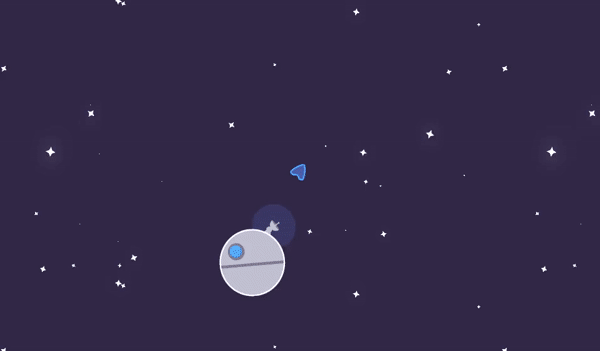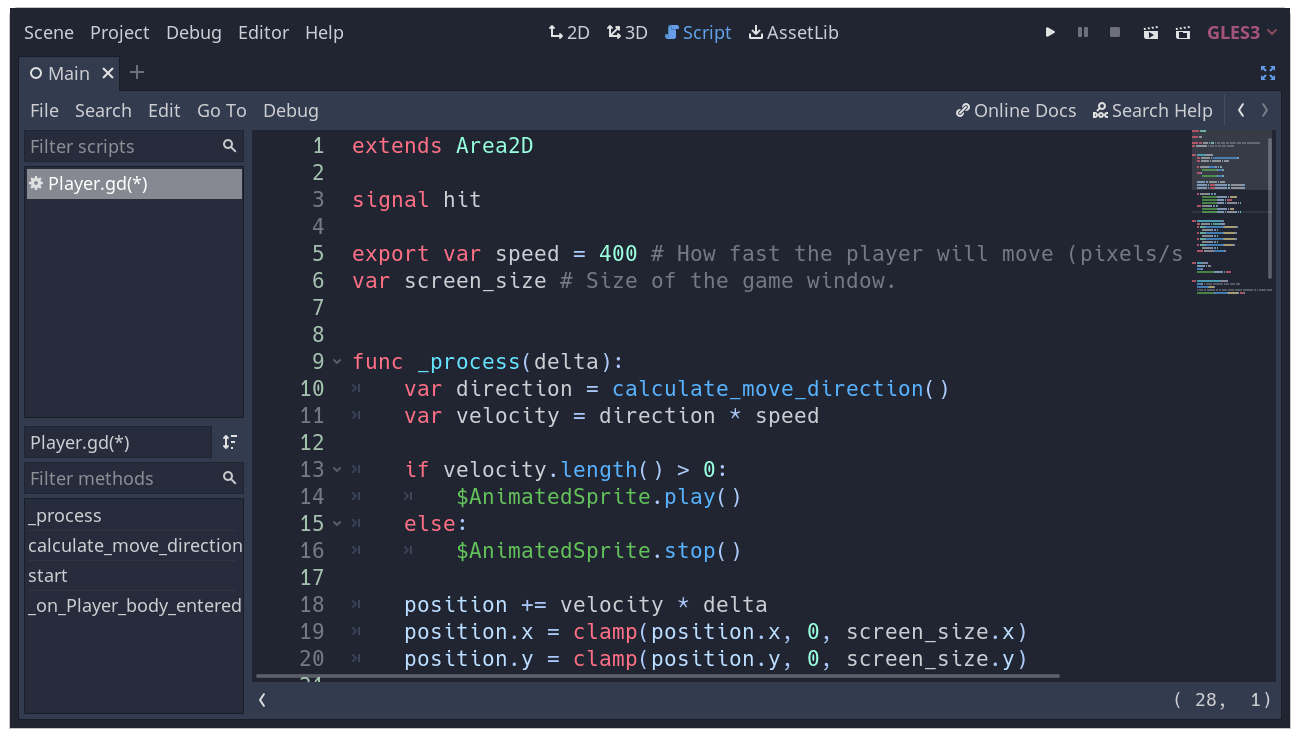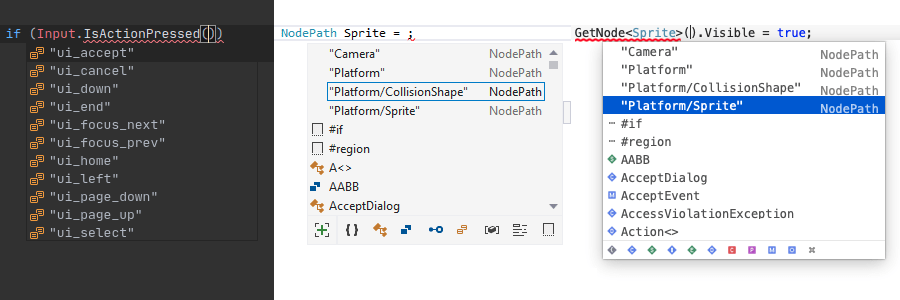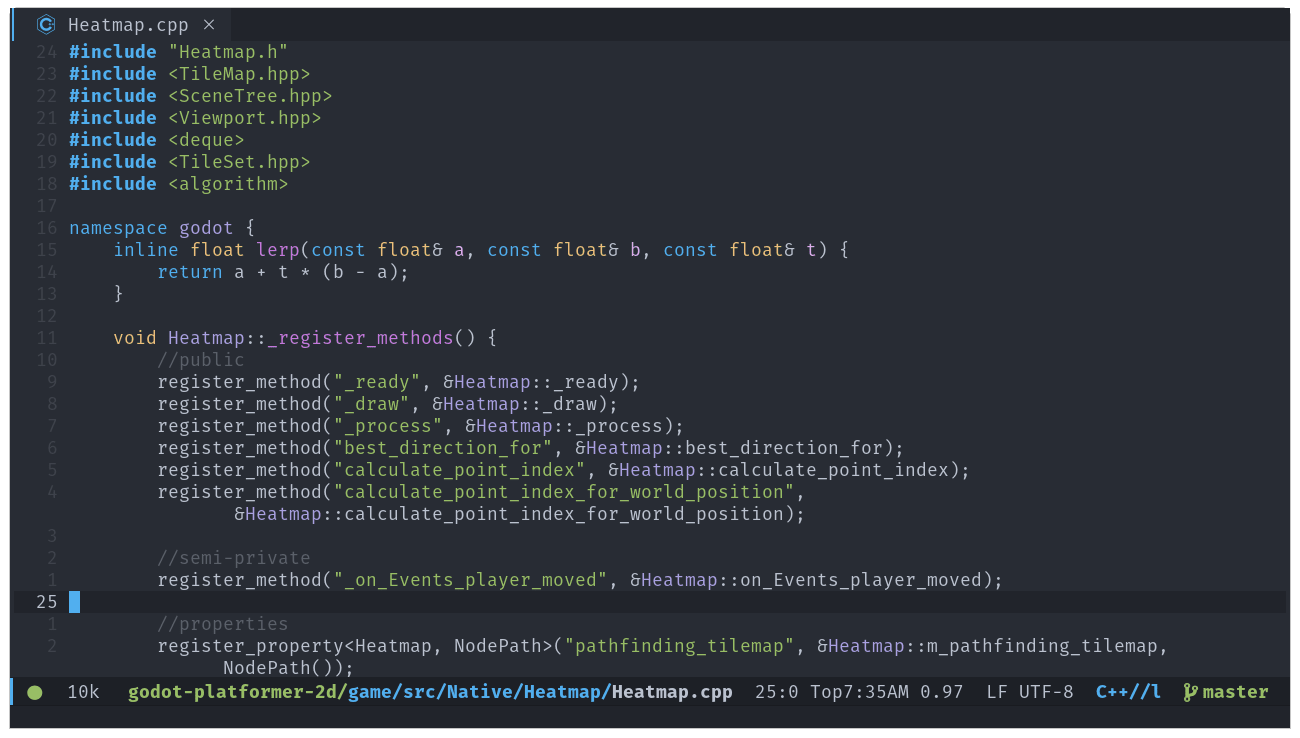Work in progress
The content of this page was not yet updated for Redot
4.3
and may be outdated. If you know how to improve this page or you can confirm
that it's up to date, feel free to open a pull request.
Scripting languages
This lesson will give you an overview of the available scripting languages in Redot. You will learn the pros and cons of each option. In the next part, you will write your first script using GDScript.
Scripts attach to a node and extend its behavior. This means that scripts inherit all functions and properties of the node they attach to.
For example, take a game where a Camera2D node follows a ship. The Camera2D node follows its parent by default. Imagine you want the camera to shake when the player takes damage. As this feature is not built into Redot, you would attach a script to the Camera2D node and code the shake.

Available scripting languages
Redot offers four gameplay programming languages: GDScript, C#, and, via its GDExtension technology, C and C++. There are more community-supported languages, but these are the official ones.
You can use multiple languages in a single project. For instance, in a team, you could code gameplay logic in GDScript as it's fast to write, and use C# or C++ to implement complex algorithms and maximize their performance. Or you can write everything in GDScript or C#. It's your call.
We provide this flexibility to answer the needs of different game projects and developers.
Which language should I use?
If you're a beginner, we recommend to start with GDScript. We made this language specifically for Redot and the needs of game developers. It has a lightweight and straightforward syntax and provides the tightest integration with Redot.

For C#, you will need an external code editor like VSCode or Visual Studio. While C# support is now mature, you will find fewer learning resources for it compared to GDScript. That's why we recommend C# mainly to users who already have experience with the language.
Let's look at each language's features, as well as its pros and cons.
GDScript
GDScript is an object-oriented and imperative programming language built for Redot. It's made by and for game developers to save you time coding games. Its features include:
A simple syntax that leads to short files.
Blazing fast compilation and loading times.
Tight editor integration, with code completion for nodes, signals, and more information from the scene it's attached to.
Built-in vector and transform types, making it efficient for heavy use of linear algebra, a must for games.
Supports multiple threads as efficiently as statically typed languages.
No garbage collection, as this feature eventually gets in the way when creating games. The engine counts references and manages the memory for you in most cases by default, but you can also control memory if you need to.
Gradual typing. Variables have dynamic types by default, but you also can use type hints for strong type checks.
GDScript looks like Python as you structure your code blocks using indentations, but it doesn't work the same way in practice. It's inspired by multiple languages, including Squirrel, Lua, and Python.
Note
Why don't we use Python or Lua directly?
Years ago, Redot used Python, then Lua. Both languages' integration took a lot of work and had severe limitations. For example, threading support was a big challenge with Python.
Developing a dedicated language doesn't take us more work and we can tailor it to game developers' needs. We're now working on performance optimizations and features that would've been difficult to offer with third-party languages.
.NET / C#
As Microsoft's C# is a favorite amongst game developers, we officially support it. C# is a mature and flexible language with tons of libraries written for it. We were able to add support for it thanks to a generous donation from Microsoft.

C# offers a good tradeoff between performance and ease of use, although you should be aware of its garbage collector.
Note
You must use the .NET edition of the Redot editor to script in C#. You can download it on the Redot website's download page.
Since Redot uses .NET 6, in theory, you can use any third-party .NET library or framework in Redot, as well as any Common Language Infrastructure-compliant programming language, such as F#, Boo, or ClojureCLR. However, C# is the only officially supported .NET option.
Note
GDScript code itself doesn't execute as fast as compiled C# or C++. However, most script code calls functions written with fast algorithms in C++ code inside the engine. In many cases, writing gameplay logic in GDScript, C#, or C++ won't have a significant impact on performance.
Attention
Projects written in C# using Redot 4 currently cannot be exported to the web platform. To use C# on that platform, consider Redot 3 instead. Android and iOS platform support is available as of Redot 4.2, but is experimental and some limitations apply.
See also
To learn more about C#, head to the C# basics page.
C++ via GDExtension
GDExtension allows you to write game code in C++ without needing to recompile Redot.

You can use any version of the language or mix compiler brands and versions for the generated shared libraries, thanks to our use of an internal C API Bridge.
GDExtension is the best choice for performance. You don't need to use it throughout an entire game, as you can write other parts in GDScript or C#.
When working with GDExtension, the available types, functions, and properties closely resemble Redot's actual C++ API.
Summary
Scripts are files containing code that you attach to a node to extend its functionality.
Redot supports four official scripting languages, offering you flexibility between performance and ease of use.
You can mix languages, for instance, to implement demanding algorithms with C or C++ and write most of the game logic with GDScript or C#.